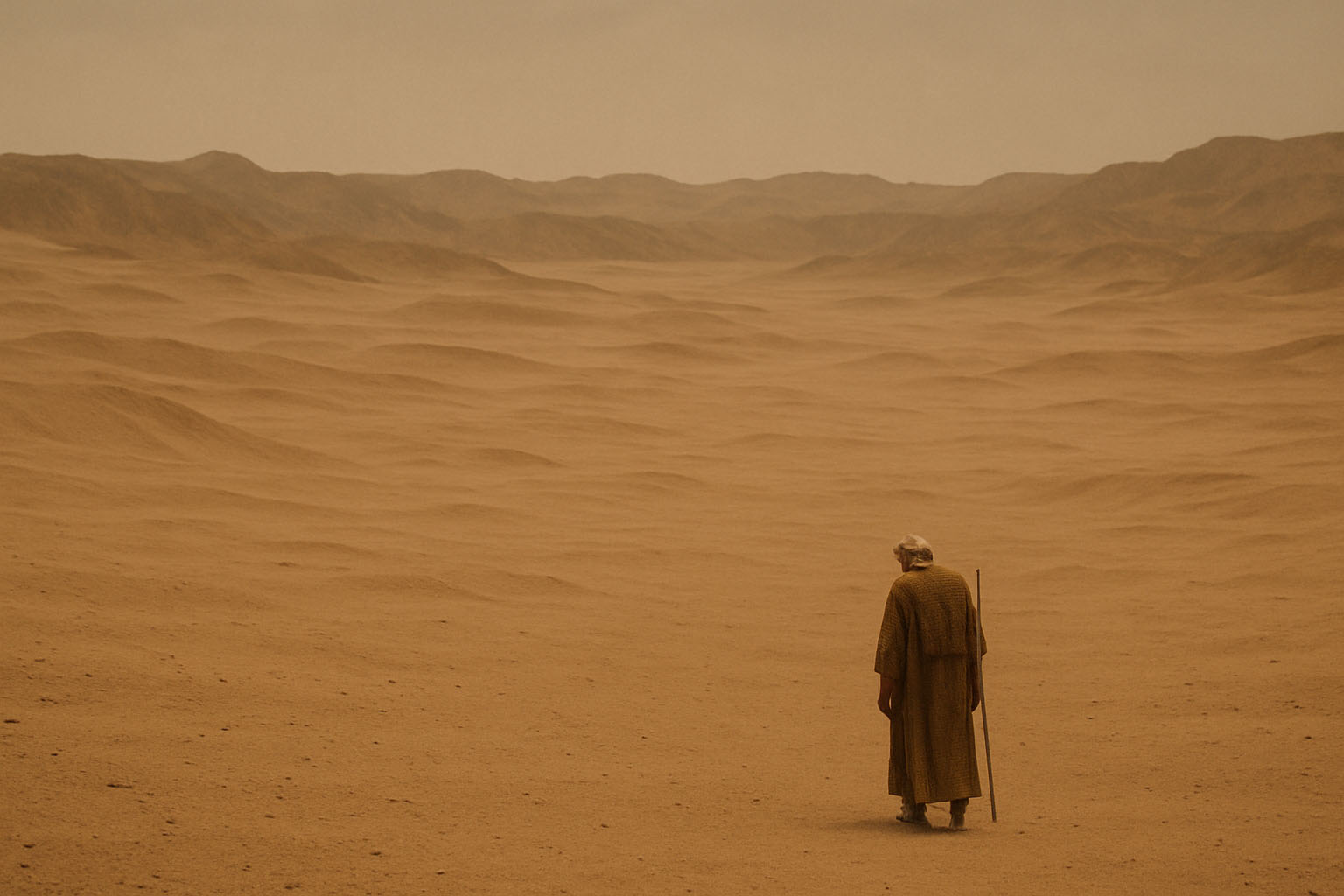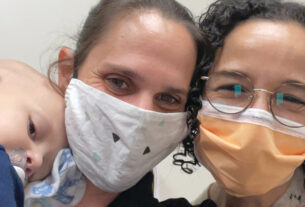Elie Wiesel describes Moses as “the loneliest” character in the Bible. Moses is the ruler of an unruly bunch of former slaves, as well as a prophet and lawgiver, and, for a short time, the High Priest. As Wiesel puts it, Moses “embodies the very concept of leadership, with its collective triumphs and personal disillusionments.” And one of those disillusionments is loneliness.
Leaders often feel isolated. Multiple studies have corroborated the adage that “it is lonely at the top.” If so, Wiesel explains, Moses, the most extraordinary leader in Jewish history, will be lonelier than any other leader.
Loneliness is actually part of a leader’s job. Wiesel explains that “there must be some distance between the leader and those he is leading. Otherwise, he will not be respected; nor will he be obeyed.” Ibn Ezra makes a similar observation about Moses. He writes that “perhaps God arranged things so that Moses would grow up in a Pharaoh’s house….because if he had grown up among brothers and they had known him from his youth, they would not be in awe of him, for they would regard him as one of their own.”
As the leader, Moses must make harsh decisions; after the incidents of the Golden Calf and the rebellion of Korach, thousands are purged. People are too frightened to be friends with someone who wields that type of power over them; and a leader cannot allow friendship to get in the way of his mission.
Wiesel’s insights, as compelling as they are, don’t fully account for the lifelong isolation Moses experienced.
Moses is repeatedly separated from his loved ones. As a child, his parents had to throw him into the river. Pharaoh’s daughter then took him in and raised him. As a young man, he goes out to see the Jewish slaves. On the first day, Moses kills an Egyptian taskmaster who is beating a slave. On the second day, after another altercation with two Jewish slaves, they inform on him. Moses then has to flee his adoptive mother and home. He moves to Midian, and marries the daughter of the local high priest; yet even there, Moses never feels at home. He names his eldest son, Gershom, because “I was a stranger in a foreign land”; the redundancy of stating that he is both a stranger and living in a foreign land highlights Moses’ unending feelings of isolation.
Moses is alternately an Israelite, an Egyptian, and a Midianite; and in a certain sense, he is none of the above. His very name hints at his destiny. Moses, in the Egyptian words used by Pharaoh’s daughter, means “I drew him from the water.” He is a child pulled from a true no-man’s-land, a place that cannot accommodate human habitation.
Loneliness is Moses’ fate throughout his life. His connection to the divine makes him virtually unapproachable. After the sin of the golden calf, he moves his tent out of the camp. Following his return with the second set of tablets, Moses’ face shines with a Divine radiance. This is too frightening for everyone else; Moses needs to cover his face in order to speak to the people. He even separates from his wife, being too holy to live intimately with her.
Even in death, Moses is alone, and his burial place remains unknown.
Moses truly is “the loneliest” character in the Bible
But there is no other choice. Moses is a transcendent figure who brings the Torah down to earth. He is, as the Maharal puts it, part human and part divine. He cannot belong to anyone or any place, because he belongs to everyone, everywhere.
To live as an angel means giving up the company of humanity. And that is profoundly difficult. As Wiesel reminds us, the Bible considers being lonely to be a curse; “it is not good for man to be alone.”
For Moses, this loneliness is a particular tragedy. At the very beginning of his story, he left Pharaoh’s house in search of his Jewish brothers. He is searching for his roots, and wants to connect with them; as Rabbi Isaac Reggio writes, “He so loved his brothers that he could not restrain himself from going out to them every single day.” But Moses never gets to make that connection. First he is exiled, and later, despite great reluctance, made the leader of the Jews. As leader, he will care for his brothers, but he won’t have the chance to connect with them. He stands up for them when they need him; he confronts Pharaoh for them, and intercedes before God for them.
But Moses is always at a distance, camped away from everyone else.
This is why the first two words of Parshat Vayelech are profoundly moving. It is easy to gloss over them; all it says is, “Moses went.” This verb appears in the Torah 30 other times in connection to Moses. But here the context is different.
Moses is about to die. He has a message he wants to share with the Jews: Joshua will lead them, and God will watch over them. They need not worry about their future without him.
But Moses does not sound the ceremonial trumpets to assemble everyone to hear what he has to say; instead, he walks over to each tribe to speak intimately with them.
Hizkuni explains that God had taken the trumpets away from Moses because “no one has power on the day of death.” Moses is about to die and be replaced; and his role is already fading.
Moses no longer carries the burden of leadership. Now he can speak to his people as a loyal friend, someone who loved them all along. The Ramban offers the following description:
Moses walked from the camp of the Levites to the camp of Israel, in their honor, like one who wishes to take leave of his friend and comes to say farewell.
At the end of his life, we get to see Moses unbound, Moses the friend rather than Moses the leader. This is the same Moses who went out to check on his brothers in Egypt, worried about the welfare of the Jewish slaves.
It is heartbreaking that Moses had to wait so long to conclude that mission of love. But life got in the way; to be precise, the most exceptional life in human history. With all of that done and accomplished, he can return to his original dream of connecting with his brothers.
Now, unbound, he finally can embrace his Jewish family.
Rabbi Chaim Steinmetz is the Senior Rabbi of Congregation Kehilath Jeshurun in New York.




